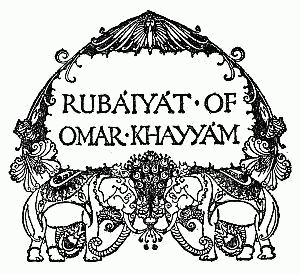 In the recent issue of ‘Iranian Studies’, Erik Nakjavani, (Professor Emeritus of Humanities, University of Pittsburgh, USA) reviews and discusses two recent volumes on the Rubáiyát of Omar Khayyám. The first is Edward FitzGerald’s Rubáiyát of Omar Khayyám: A Famous Poem and its Influence, by William H. Martin and Sandra Mason (Anthem Press, 2011).
In the recent issue of ‘Iranian Studies’, Erik Nakjavani, (Professor Emeritus of Humanities, University of Pittsburgh, USA) reviews and discusses two recent volumes on the Rubáiyát of Omar Khayyám. The first is Edward FitzGerald’s Rubáiyát of Omar Khayyám: A Famous Poem and its Influence, by William H. Martin and Sandra Mason (Anthem Press, 2011).
The reviewer discusses this work in respect of contemporary views about reception and assessment of poetry, by enthusiasts and devotees as well as scholars and academics. Some quatrains are quoted to illustrate ontological and metaphysical dimensions in the Rubáiyát, which turns this part of the review into a more or less philosophical essay.
Next Nakjavani reviews a second volume: Edward FitzGerald’s Rubáiyát of Omar Khayyám: Popularity and Neglect, edited by Adrian Poole, Christine van Ruymbeke, William H. Martin, and Sandra Mason (Anthem Press, 2011), in which he summarizes and discusses the separate essays. This volume contains the essays that were presented at a conference, held at the University of Cambridge, July 2009.
The reviewer judges the two volumes as “dual complementary works of scholarship, reflection, and academic research, in the strongest sense of the adjectives. Scholars, academics, literary critics, translators, and those who love poetry and share Khayyám’s and FitzGerald’s twofold concerns with the human lived experience of being and nonbeing will find these twin texts of much interest.”
Erick Nakjavani (2014) FitzGerald’s Rubáiyát of Omar Khayyám: Critical
Celebrations of a Beloved Poem, Iranian Studies, 47:4, 627-648, DOI: 10.1080/00210862.2014.906184
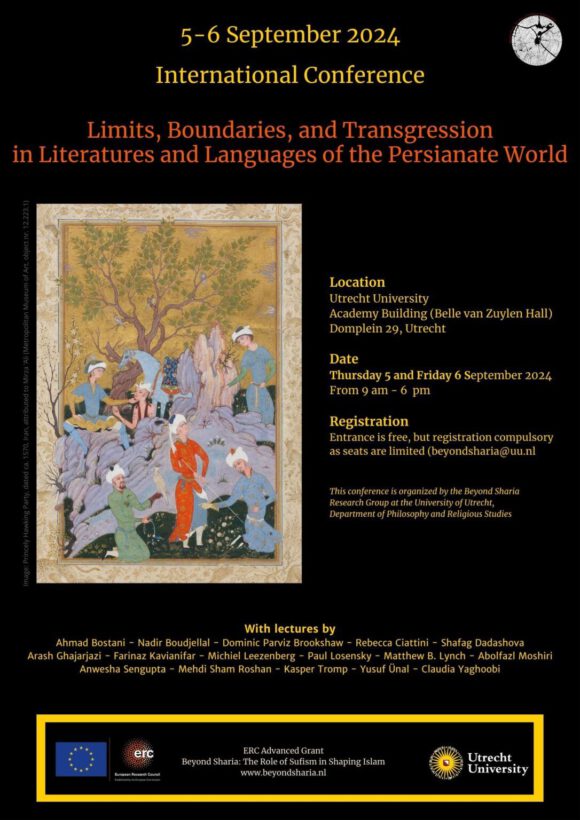 Utrecht University
Utrecht University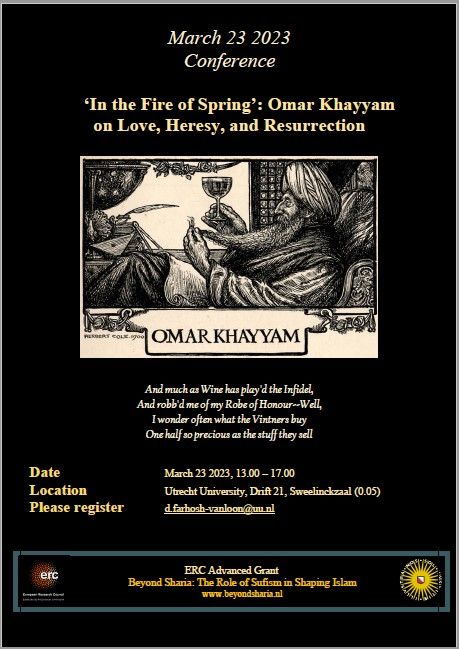

 In the recent issue of ‘Iranian Studies’, Erik Nakjavani, (Professor Emeritus of Humanities, University of Pittsburgh, USA) reviews and discusses two recent volumes on the Rubáiyát of Omar Khayyám. The first is Edward FitzGerald’s Rubáiyát of Omar Khayyám: A Famous Poem and its Influence, by William H. Martin and Sandra Mason (Anthem Press, 2011).
In the recent issue of ‘Iranian Studies’, Erik Nakjavani, (Professor Emeritus of Humanities, University of Pittsburgh, USA) reviews and discusses two recent volumes on the Rubáiyát of Omar Khayyám. The first is Edward FitzGerald’s Rubáiyát of Omar Khayyám: A Famous Poem and its Influence, by William H. Martin and Sandra Mason (Anthem Press, 2011).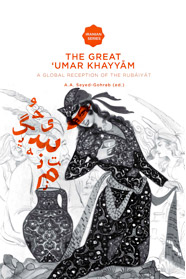 The book The Great ’Umar Khayyam, which consists of 18 essays about Khayyam’s influence, shows that traces of Khayyam can be found throughout Western literature and culture. Dutch poets such as Leopold and Boutens were inspired by him, for instance, but the quatrains also made their mark in 20th century painting and music.
The book The Great ’Umar Khayyam, which consists of 18 essays about Khayyam’s influence, shows that traces of Khayyam can be found throughout Western literature and culture. Dutch poets such as Leopold and Boutens were inspired by him, for instance, but the quatrains also made their mark in 20th century painting and music.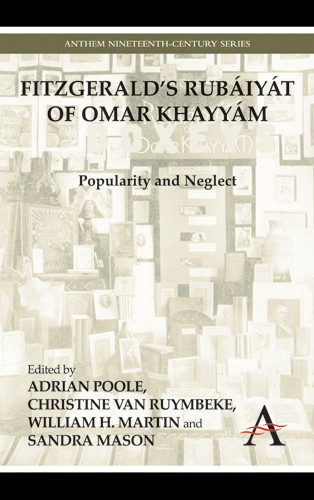 This title from Anthem Press, edited by Adrian Poole, Christine van Ruymbeke, William H. Martin and Sandra Mason, was initially published in 2011, but is now available as Ebook.
This title from Anthem Press, edited by Adrian Poole, Christine van Ruymbeke, William H. Martin and Sandra Mason, was initially published in 2011, but is now available as Ebook.